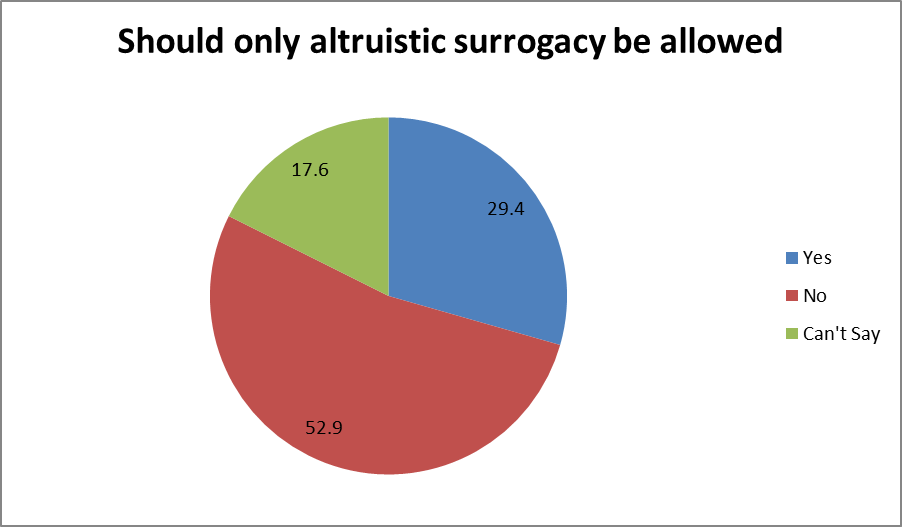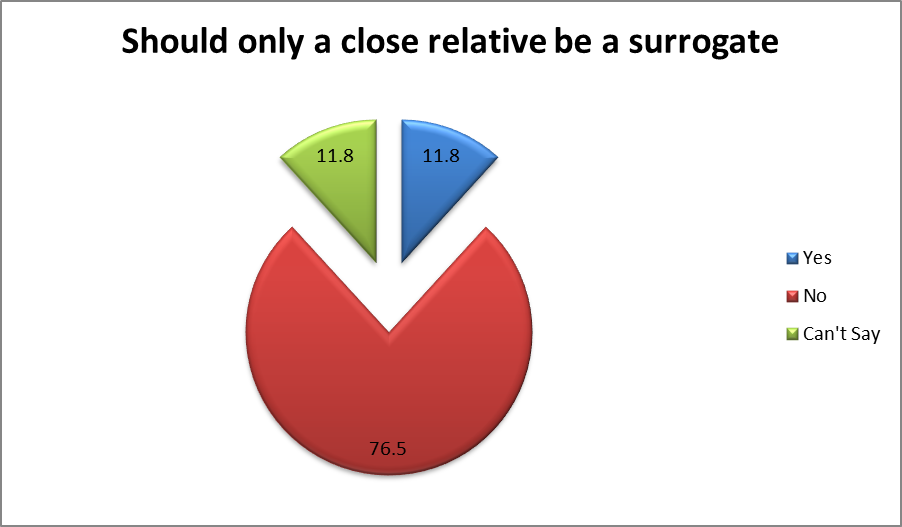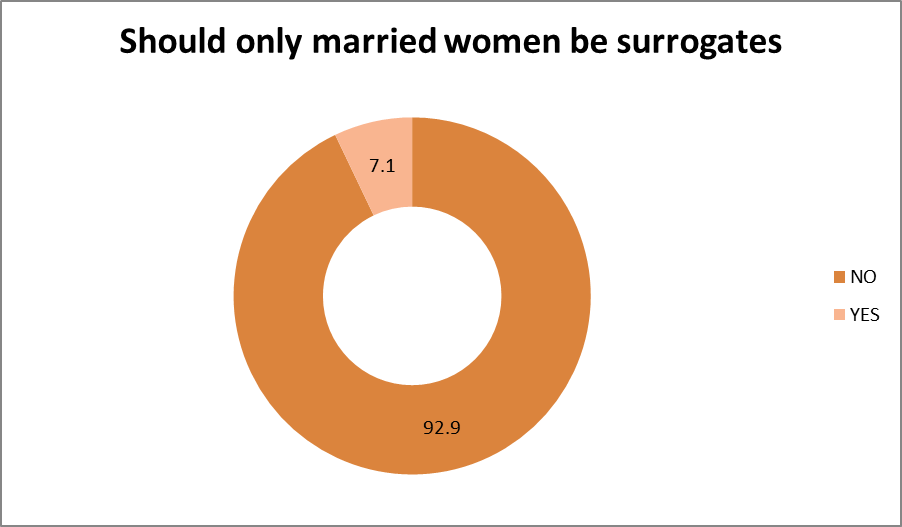What Is the Future of Surrogacy in India? We Discuss All Sides of the Issue
A Parliamentary Standing Committee has reviewed the new Surrogacy (Regulation) Bill 2016, and has raised many concerns. Maadhyam takes a look at all sides of the issue.

With a view to regulate surrogacy practices in India and to protect the interests of surrogates, The Surrogacy (Regulation) Bill was introduced in the Lok Sabha in November 2016. The Bill was sent to the Parliamentary Standing Committee on Health and Family Welfare for review.
Meanwhile, Maadhyam undertook a stakeholder engagement exercise and invited views from citizens, to gain the perspective of Surrogate and Commissioning Parents. The responses were shared with the Committee. After months of deliberations, they have finally come up with their report, which comprehensively addressed many concerns raised by stakeholders.
In this two part series, we detail the report from various perspectives.
On Altruistic surrogacy:
The Bill allowed only altruistic surrogacy – where surrogate mothers undertake surrogacy on grounds of love and compassion without expecting any monetary benefit in return. They are entitled to only medical expenses and an insurance cover. The Bill completely prohibited commercial surrogacy.
Stakeholder responses –
In the engagement undertaken by Maadhyam, stakeholders were asked for their views on whether it was justified to allow only altruistic surrogacy.
Nearly 53% of the respondents replied in the negative

The main reasons cited by the respondents was that this would amount to a loss of livelihood for women. Also, they highlighted how a commercial contract is better suited to protect the rights of all parties involved since it is legally enforceable.
It was also suggested that a regulatory body should put in place as a safeguard.
Committee’s observations –
The report states,
‘The Committee is of the view that altruistic surrogacy is another extreme and entails high expectations from a woman willing to become a surrogate without any compensation or reward but a decision based on noble intentions and kindness.’.
Further observations included:
- Altruistic surrogacy could be more exploitative than commercial surrogacy for women in the prevailing patriarchal structure of society.
- It is grossly unfair and arbitrary to prevent women from being paid for their reproductive labour and expecting them to provide it for free.
- Pregnancy is to be considered a period of nine-month labour with far reaching implications for the health, time and family of the surrogate. Altruistic arrangements do not provide any support to the surrogate.
Recommendations:
It was recommended that commercial surrogacy should be regulated through a comprehensive compensation policy.
After taking into account the views of women who had undertaken commercial surrogacy, the Committee noted that it was seen as a means by women to economically uplift themselves and their families when other economic options were more exploitative and far less remunerative.
The Committee is, therefore, of the view that economic opportunities available to surrogates through surrogacy services should not be dismissed in a paternalistic manner.
It was also added that:
- A surrogate mother should be adequately and reasonably compensated and the compensation should be commensurate with all the costs she bears. This should include expenses related to post delivery care and child care support. Her kin should be compensated in case of her death during pregnancy or childbirth.
- The quantum of compensation should be fixed by a relevant authority, and not by the parties depending upon their respective bargaining power, in order to safeguard the interests of the surrogate and to protect her from exploitation.
Standing Comm on Health recommends that altruistic #surrogacy be replaced by compensated #surrogacy. Shd govt accept this recommendation?
— Maadhyam (@_maadhyam_) September 11, 2017
Eligibility conditions for surrogates:
As per the Bill, the woman acting as a surrogate must be:
- A ‘close relative’ of the intending couple
- Between 25 to 35 years old.
- Married and have a child of her own
Further, she can act as a surrogate only once in her lifetime.
Stakeholder responses received by Maadhyam:
The respondents were requested to reflect on the proposition that only a ‘close relative’, a term which was not even defined in the Bill, be allowed to be a surrogate and a large majority responded in the negative.

Many reasons were provided by the respondents for not supporting this provision – there is a real threat that women can be forced to undertake surrogacy for their relatives and that too without any compensation; it is likely to lead to family disputes in the future and could negatively affect the emotional and mental well-being of the child.
Committee’s recommendations
Close relative
The report recommends for removal of close relative requirement after making following observations:
- The consent of the surrogate may be obtained through coercion and exploitation due to family pressures.
- The child and the surrogate may develop an emotional bond due to proximity, which may lead to emotional turmoil for all.
- Issues relating to parentage, custody, inheritance and property disputes within the family may arise.
Age & Marital status
The Committee recommends raising the upper age limit from 35 years to 39 years. However, it remains silent on the issue of the marital status of the surrogate, i.e. whether single women can also be allowed to be a surrogate.
But when asked by Maadhyam that whether only married women should be allowed to act as surrogates, around 93% of responses were in negative. For stakeholders, it was a matter of independent choice depending upon physical, mental and psychological health of the surrogate and not her marital status.

Number of times a woman can act as surrogate
The report upholds that a woman should undergo surrogacy only once in her lifetime, considering the risks and complications involved.
It asserts that surrogacy should not become a profession.
However, in case of abortion, it recommends for a clear provision in the Bill to allow the woman to be a surrogate for the second time.
Standing Comm on Health recommends that condition of only a married close relative woman undertaking #surrogacy be removed. Shd govt accept?
— Maadhyam (@_maadhyam_) September 11, 2017
In the next part of the series, we take a look at how, despite many progressive recommendations, the report also takes a regressive stand on certain matters like not allowing single persons or members of the LGBTQ community to opt for surrogacy.
Like this story? Or have something to share?
Write to us: [email protected]
Connect with us on Facebook and Twitter.
NEW: Click here to get positive news on WhatsApp!
If you found our stories insightful, informative, or even just enjoyable, we invite you to consider making a voluntary payment to support the work we do at The Better India. Your contribution helps us continue producing quality content that educates, inspires, and drives positive change.
Choose one of the payment options below for your contribution-
By paying for the stories you value, you directly contribute to sustaining our efforts focused on making a difference in the world. Together, let’s ensure that impactful stories continue to be told and shared, enriching lives and communities alike.
Thank you for your support. Here are some frequently asked questions you might find helpful to know why you are contributing?


This story made me
- 97
- 121
- 89
- 167











